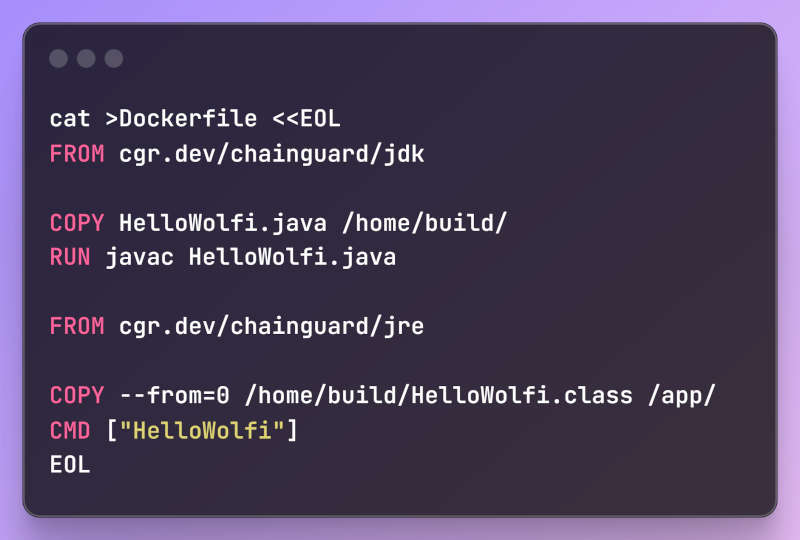| Chainguard Images Now Come With JCK Certified Java |
| Written by Nikos Vaggalis | |||
| Thursday, 25 July 2024 | |||
|
Chainguard has released OpenJDK Java images which are JCK conformant, adhering to the strict Java standard but also with a twist. The twist is that the images are minimalist and based on Wolfi Linux (Un)Distribution. What's the deal with that?
Wolfi is a community Linux (un)distribution that is built with security measures necessary for securing the software supply chain such as signing and sensible defaults. The defaults that it enforces on container images are:
As far as the 'un' in (un)distribution goes, it means that Wolfi is not a full Linux distribution designed to run on bare metal. Instead it is a stripped-down version designed for the cloud era as it doesn't include a Linux kernel but relies on the environment, such as the container runtime, to provide it. This is so, so that dependencies are as much as possible minimized in order to reduce potential attack surfaces and to simplify actions such as auditing, updating and transferring images. Chainguard's ultimate aim is to eradicate CVEs from containers. On top of that we now get JCK certified Java runtimes. The JCK is a comprehensive test suite provided by Oracle that validates adherence to the Java specification. This conformance now applies to any Chainguard Image that contains the JDK and JRE latest builds for OpenJDK Java 21.0.3 and Java 22.0.1. This means that Chainguard's Java base images are fully compatible and conform to the rigorous standards set out for Java SE 21 and 22 for both compiler and runtime. The Chainguard images are available on cgr.dev and can be pulled with: for JRE docker pull cgr.dev/chainguard/jre:latest for JDK docker pull cgr.dev/chainguard/jdk To put it into practice, if you've written a simple Java class say HelloWolfi.java, to containerize it you would:
Following that, you can build the image: docker build -t my-java-app . and run it by referencing this tag, as in the following command: docker run my-java-app This way you get the best of two worlds; solid Java on secure containers.
More InformationRelated ArticlesHappy Birthday To Wolfi Linux Undistro Liberica Alpaquita Containers Now Come With CRaC
To be informed about new articles on I Programmer, sign up for our weekly newsletter, subscribe to the RSS feed and follow us on Twitter, Facebook or Linkedin.
Comments
or email your comment to: comments@i-programmer.info |
|||
| Last Updated ( Thursday, 25 July 2024 ) |



